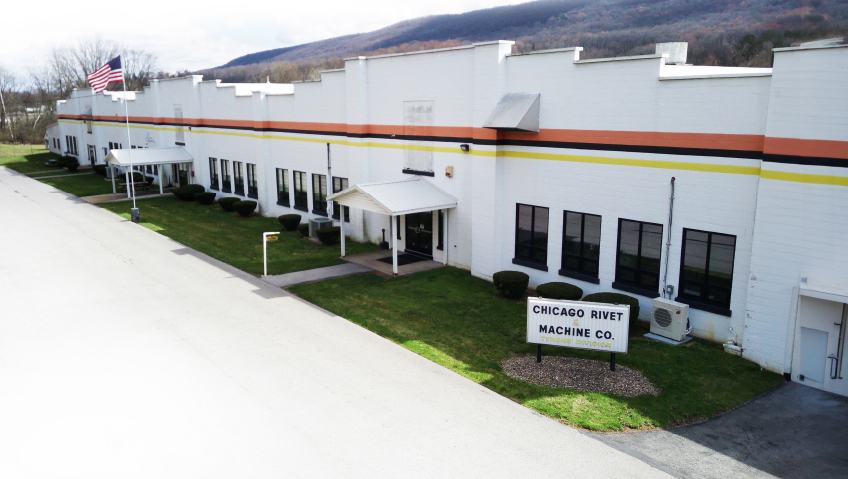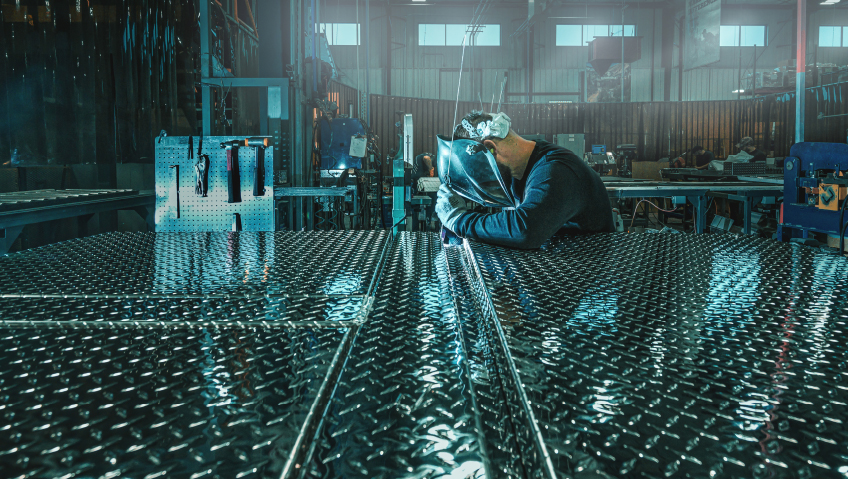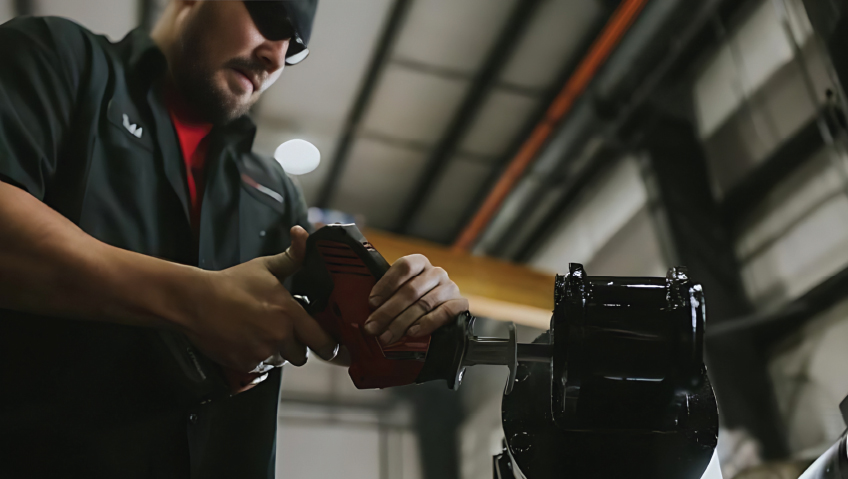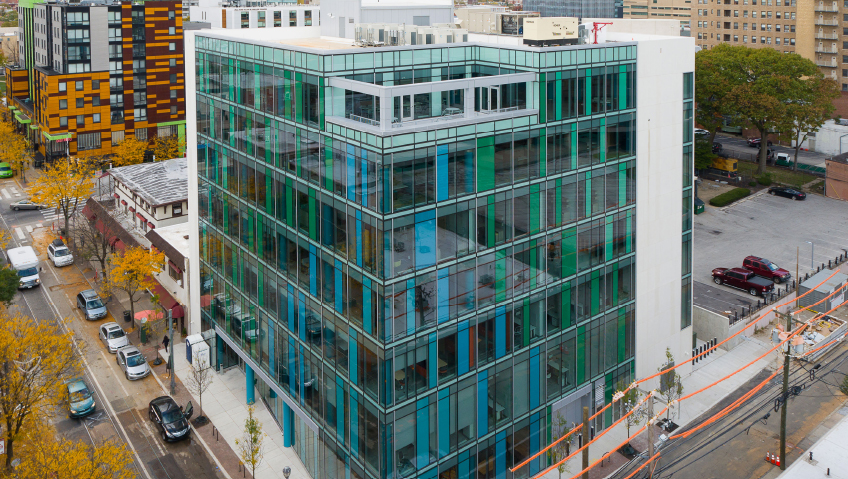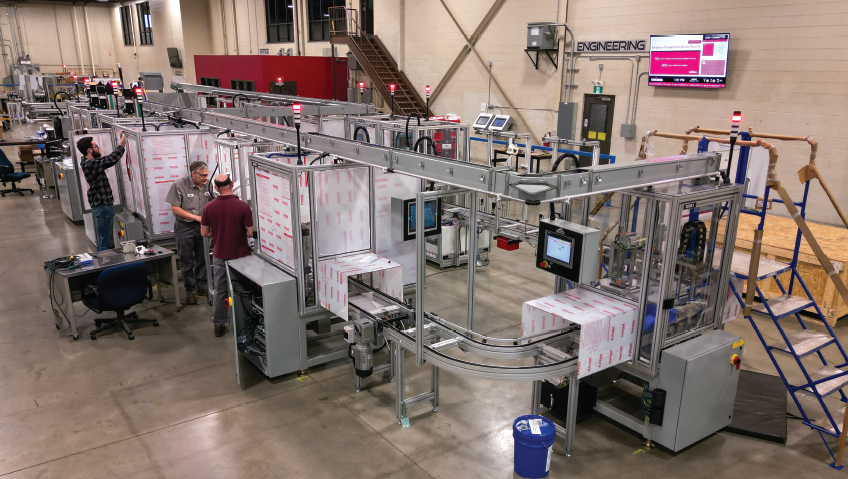For over 100 years, Chicago Rivet & Machine Co. has been on a mission: to provide its customers “with the highest quality products at a competitive price.”
Founded by the grandfather of John Morrissey—who today serves as Vice President of Marketing and Business Development—the company has forged a legacy of innovation, quality, and exceptional customer service.
Getting its start manufacturing brake lining and harness rivets in 1920, Chicago Rivet built its first rivet setting machine in 1925. In the 1930s, the business went public and is still traded on the New York Stock Exchange. The mid-1940s saw the company continue to grow and introduce new products, including the Model 912, the most popular riveter in its automatic equipment line, and it remains active in their riveter product line to this day. Chicago Rivet also received awards and commendations from the U.S. government as a critical parts supplier during the WWII effort.
Into Pennsylvania
In 1946/1947, the company explored opening a facility outside of the Chicago area for manufacturing fasteners and rivet setting equipment. Looking at different parts of the United States to expand, the business decided on Tyrone, Pennsylvania. With nearby railways, the location was ideal for shipping products across the country.
“That really made the company become a choice after World War II,” says Morrissey of the growing business, which saw the new Tyrone facility begin manufacturing product alongside the Chicago facility in 1948. “They’ve been a vital source of our products and output since that time.”
When the Chicago area facility closed in 1980, Tyrone became the primary maker of all fasteners—which are ISO 9001 and IATF 16949 certified—along with all rivet setting and assembly equipment. “Tyrone, Pennsylvania really is a key driver in our success,” says Morrissey of the facility, which has also achieved Chamber of Commerce Hall of Fame status for Blair County businesses.
Ongoing investment
To maintain its prominent position in the industrial fastener industry, Chicago Rivet has invested about $18 million over the past decade in facility upgrades and capital equipment. According to the company, this gives Chicago Rivet “greater capabilities and efficiencies in producing complex geometric fasteners,” and results in lower costs to customers.
Planning to use the Tyrone location as a springboard into the future, the company recently updated its website with a virtual plant tour video of the Tyrone facility. “In addition to our detailed cold-formed part capabilities, a user can also examine several different case studies, highlighting how our engineers carefully studied various customers’ applications to create the optimal solution for their customers’ fastener and riveting equipment challenges,” says the company.
The company’s Investments in the Future section highlights some of Chicago Rivet’s many equipment purchases, such as in-house drill and tap capabilities. “This gets back to optimizing and providing in-house pricing for secondary operations on parts that require a drill and tap with some of our customers,” says Morrissey. “If we can bring that piece of equipment in-house and do that on-site, that’s a benefit to the customer, both from a price point and lead time perspective.”
Other investments, such as optical sorting and high-speed headers for better output, also result in cost savings for customers.
To make rivet-setting equipment, the company uses a series of automated mills and lathes, which also represent some of its investment. All CNC machines have been upgraded to a new standard, saving time and money. Setup time is critical and ranges from four to eight hours, and with updated equipment, setup can be achieved from outside the machine, so while producing part A, part B can be set up from the outside and the conversion is seamless.
Along with bringing in key technologies to the cold heading industry, Chicago Rivet & Machine has also made many upgrades to its Tyrone, Pennsylvania facility. These include replacing the roof, installing new LED lighting, resurfacing the floor, and more.
“When you look at the overall package, it’s been done in a way that money is allocated every year to making improvement projects within the facility to keep us competitive,” says Mike Sweitzer, recently retired Plant Manager of 30 years in that position at the Tyrone facility.
These investments and improvements are making Chicago Rivet even more flexible and responsive. “Being able to adapt is going to be a key driver for us in the future,” observes Morrissey. “And if we can be more efficient and the header operation can work on the next job, it increases our efficiency. So this type of equipment and investment allows us to be competitive in the industry.”
Another reason spurring the company’s recent investments in technology is the shortage of workers facing America’s manufacturers. To attract the next generation of workers, Chicago Rivet is involved with high school programs in Blair County and is looking at recruiting young people with mechanical aptitude who want to go into manufacturing. Being located near Pennsylvania State University is also advantageous for a company seeking students with technical backgrounds.
Range of capabilities
Over the decades, Chicago Rivet has emerged as a critical supplier to the automotive, appliance, and electrical industries, among others. Along with manufacturing a diverse line of rivet setting equipment, tooling components, and machine parts for its riveters, the company is also known for creating custom-designed automated assembly systems.
At its Tyrone facility, Chicago Rivet also makes many fasteners and cold-headed parts, such as self-piercing, split, tapered, collar, complex, and shoulder rivets—to name a few—from aluminum, brass, carbon steel, copper, nickel silver, and 302, 410, and 430 stainless materials.
“Our dimensional capabilities range from a .562 maximum diameter and 5” maximum length on solid parts, and a .500 maximum diameter and 3-1/4” maximum length on tubular cold-headed parts,” Morrissey states. “We can provide fastener head designs such as six-lobe, oblong, slotted, oval, flat countersunk, stamped, decorative, and button-head configurations. Finishing options include black zinc and black oxide, Magni, galvanizing, painting/Japan, brass, copper, gold, nickel, tin, zinc, anodizing, and silver plating.”
All of the company’s rivets are made with remarkable precision. Machinists need to pay the closest attention to hole diameter and wall thickness to prevent the collapse of parts in the forming process. This all goes back to Chicago Rivet’s ISO credentials. At the smaller end, Chicago Rivet can produce parts in .034 diameter wire. These include tiny brass case rivets with a hole at the bottom, used to attach handles to pocketknives, and case rivets for eyeglasses. “It’s something to watch when you can produce a part that small,” says Sweitzer.
For clients, with clients
At Chicago Rivet, most fasteners are made to specific customer designs, which may be tweaked, depending on tolerances. “We’ll work with customers and tell them what we’re capable of holding on our conventional single die headers, and they have a choice to make of whether they can accept that tolerance range, or have to have the tighter tolerance, which may entail a more intricate multi-die header,” says Morrissey.
For one large automotive customer, the company worked with engineers to determine if a part’s head could be shaved to a certain configuration, and if it was best to make a cold-headed or shoulder rivet. This resulted in a unique design on the oblong head, which went into production for over 10 years.
The Chicago Rivet team also works with clients to help them save money by using fewer—or different—materials, manufacturing methods, and finishes. The scrap rate on a screw machine part, for example, is 50 to 60 percent, while cold heading a part doesn’t produce any scrap metal. Modifying parts can thus realize significant cost reductions for Chicago Rivet customers.
Another way the company saves on expenses for customers is through local sourcing wherever possible. Much of Chicago Rivet’s steel comes from Johnstown, Pennsylvania, just 45 miles away.
For the long term
“We try to develop relationships we can make work for a long time,” comments Morrissey. “Again, you have to be cost-effective; we are out quoting and trying to find those low-cost providers, as long as they can meet the quality requirements we have. We are in such a competitive market, and you have to maintain that competitiveness.”
Beyond automotive, which comprises about 60 percent of the company’s volume, Chicago Rivet is active in other markets, such as electrical, HVAC systems, sheet metal, medical, lighting, and cutlery, where rivets are used to mount blades to handles. Recently, the business picked up a new account in the appliance industry, where its rivets will attach roller brackets and coasters to refrigerators and washing machines.
“In the future, we want to continue to diversify,” says Morrissey. “Automotive has been great, but I think it’s important for companies to be well-balanced and diversified. When a particular industry is down, or there is an automotive strike like we had last year with the Big Three, you need to have a buffer in medical, appliance, electronics, and HVAC. So that’s something we’re going to focus on in the future.”

